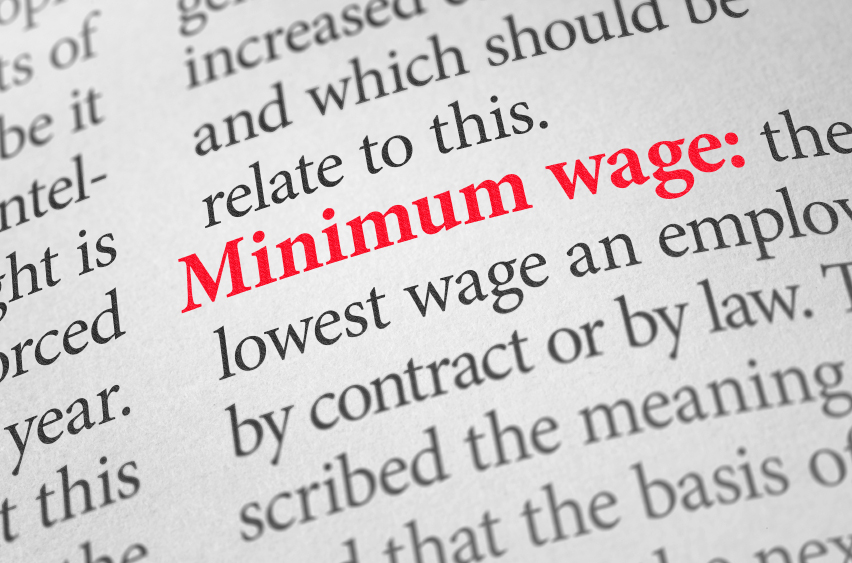Employers are getting a look at a bill that would set a $15-an-hour federal minimum wage by 2025. The bill, which is in line with President Joe Biden’s call for an increase in the federal minimum, which has stood at $7.25 since 2009, is likely to spur calls for relief from certain employers, according to attorneys who work with businesses on employment law matters.
The Raise the Wage Act of 2021, introduced in Congress on January 26, calls for an initial bump in the minimum to $9.50 with phased-in increases through 2025. It also calls for an eventual end to the tipped minimum that allows employees’ tips to count toward an employer’s minimum wage responsibility as well as elimination of the subminimum wages allowed for certain people with disabilities and young workers.
“Small businesses will likely seek exemptions, or at the very minimum a slowed progression, to this proposed bill,” Shannon S. Pierce, an attorney with Fennemore Law in Reno, Nevada, says. “Many small businesses simply cannot afford the minimum wage rates that are being proposed, especially in the midst of a pandemic.”
Pierce expects certain industries that have been particularly affected by the COVID-19 crisis, such as the restaurant industry, to seek special exceptions. She also expects strong opposition from the restaurant industry, “which depends heavily on existing exemptions to minimum wage for tipped employees.”
Effect of Pandemic
Sara Anne T. Quinn, an attorney with Butler Snow LLP in Nashville, Tennessee, points out the bill may undergo changes as it goes through the legislative process. “It will be interesting to see how this bill takes final form, especially on the heels of the pandemic,” she says.
Many of the industries that would be most affected also are the ones hardest hit during the pandemic—industries such as travel and leisure, restaurants, service, and transportation, Quinn says.
“Those employers were already feeling pinched and having to let many workers go,” Quinn says. “I think these employers are concerned about the ability to return to ‘normal’ business while at the same time having to increase worker pay.”
Quinn says raising the federal minimum may not have much of an effect in states and localities that already have rates above the current federal minimum. “Most of those higher wages were instituted in response to the fact that the federal minimum wage is not, realistically, a very livable wage, especially in states or cities with a higher cost of living,” she says.
Employers that already have implemented a $15 minimum may be more affected, Quinn says, since their $15-an-hour employees would suddenly become minimum wage workers, “which may carry a certain stigma or make recruiting more difficult.”
“These employees will have to decide whether or not, for employee morale, recruiting, or otherwise, they want to and can afford to increase their wage floors,” Quinn says.
Charles H. Kaplan, an attorney with Hodgson Russ LLP in New York City, cites economists who believe a $15 minimum wage would adversely affect employment in retail stores and restaurants that have already suffered because of COVID-19.
“Although a reasonable hike in the federal minimum wage may be acceptable to some businesses, raising the minimum wage to $15 per hour would be particularly burdensome on small businesses, particularly in rural areas,” Kaplan says.
Many States, Employers Mandate Higher Minimum
Information from the U.S. Department of Labor shows 29 states have state laws mandating a minimum wage higher than the current federal minimum. A few states have a $15 minimum already in place or scheduled at least for certain areas. Pierce says the bill would not impose significant changes for employers in such states except for businesses that take advantage of the minimum wage rules for tipped employees.
Those employers will need to compare the timing of state versus federal minimum wage increases, Pierce says, since many state laws slowly increase minimum wages over time. “An analysis will need to be performed as to whether the proposed federal bill will cause wages to increase more quickly than the existing state schedules,” she says. “If that occurs, federal law will trump state law for as long as the federal law requires a higher wage.”
Many employers already compensate their lowest-paid employees more than $7.25 an hour even in states that don’t require a wage higher than the federal $7.25-an-hour minimum. For example, Target raised its starting wage to $15 an hour in July 2020, and Amazon began a $15 minimum in 2018.
But other workers are still working for $7.25 an hour. Information from the U.S. Bureau of Labor Statistics says that in 2018, 1.7 million workers, 2.1% of all hourly paid workers, earned wages at or below the federal minimum.
Tammy Binford writes and edits news alerts and newsletter articles on labor and employment law topics for BLR web and print publications.
The post Employers Likely to Seek Exceptions in $15 Minimum Wage Bill appeared first on HR Daily Advisor.
